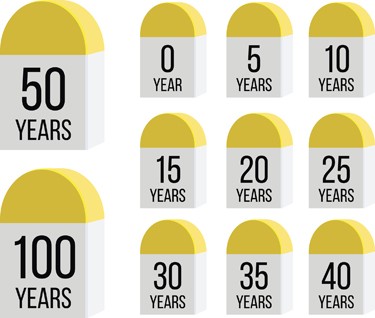Life's financial turning points: good and not-so-good
The marriage and divorce statistics for 2015 sadly suggest that 43 per cent of Australian marriages may end in divorce. Significantly, this number-crunching does not include separations of de facto couples.

Unfortunately, the breakdown of a relationship is a reality for many couples and it is a reality with typically damaging financial and emotional consequences.
We face a series of widely-shared financial turning points during our lives. Yet how we handle them obviously differs widely.
ASIC's personal finance website MoneySmart has long published a comprehensive feature, Life's events – last updated this month – with tips about how to deal with our financial turning points, the good and not-so-good. And unsurprising, the breakdown of a personal relationship numbers among the life events on ASIC's list.
Financial turning points include receiving our first pay, joining our first super fund, leaving home for the first time and entering a personal relationship. Among the others are buying our first (second or third) home, dealing with serious illness in our families, coping with a partner’s death, losing our job and eventually retiring.
A decision to begin saving seriously to meet our long-term goals and the creation of our first financial plan are high among our key financial milestones.
Thinking about the feasibility of ‘downsizing’ to a smaller home as we age is becoming more common and finding suitable age care is climbing higher in the list of life events with the ageing of the population.
There are straightforward ways to help prepare for financial turning points such as budgeting, saving, investing, obtaining adequate insurance, considering quality professional advice when necessary and estate planning.
How we cope as investors with sharply rising or sharply falling investment markets can be a life-changing event. Investors who set an appropriately-diversified strategic portfolio, and who remain disciplined and focused on their long-term goals are best-placed to cope with market upheavals.
It is critical to try to stop one life event having negative implications for another life event. For instance, a failure to remain disciplined during a fall in share prices of the magnitude that occurred during the GFC may reduce your standard of living in retirement – even though that retirement may be many years away.
Planning for life's financial events is at the core of sound financial planning.
Robin Bowerman
Head of Market Strategy and Communications at Vanguard.
5 April 2017
www.vanguardinvestments.com.au
Hot Issues
- AI exuberance: Economic upside, stock market downside
- Becoming a member of an SMSF is easy, but there are other things that need to be considered
- Investment and economic outlook, November 2025
- Move assets before death to avoid tax implications
- ATO issues warning about super schemes
- 12 financial tips for the festive season and year ahead
- Birth date impacts bring-forward NCCs
- Countries with the largest collection or eucalyptus trees
- How to budget using the envelope method
- Accountants united in support for changes
- Investment and economic outlook, October 2025
- Stress-test SMSF in preparation for Div 296
- Determining what is an in-house asset can help determine investment strategy
- Beware pushy sales tactics targeting your super
- Call for SMSF ‘nudge’ in DBFO package
- How Many Countries Divided From The Largest Empire throughout history
- How changes to deeming rates could affect your pension payments
- Five building blocks that could lead to a more confident retirement
- Investment and economic outlook, September 2025
- Caution needed if moving assets to children
- Evolution of ‘ageless workers’ sees retirement age rise
- Younger Australians expect more for their retirement
- New NALE guidance still has issues
- Airplane Fuel Consumption Per Minute


